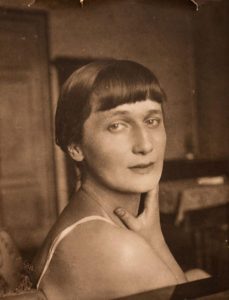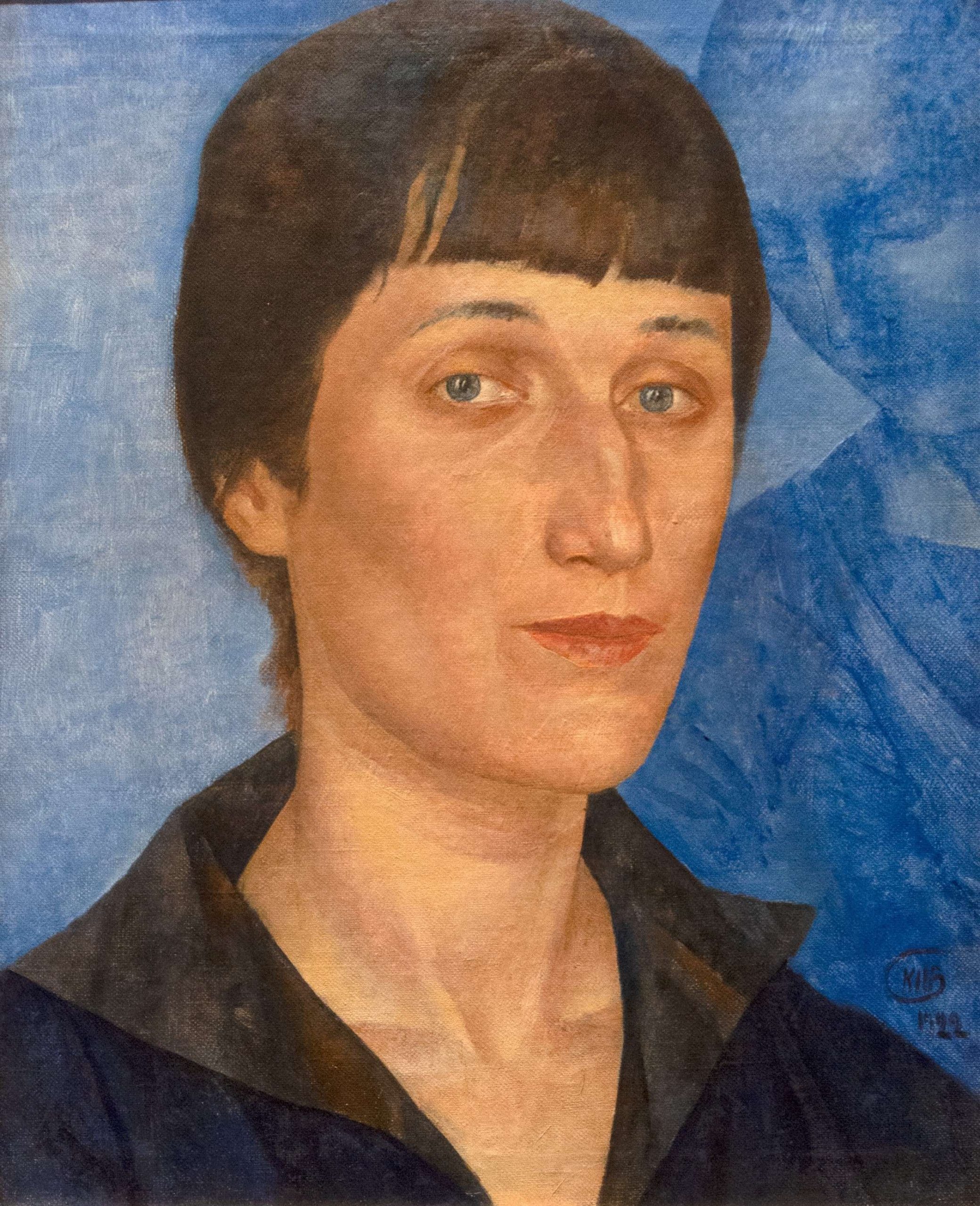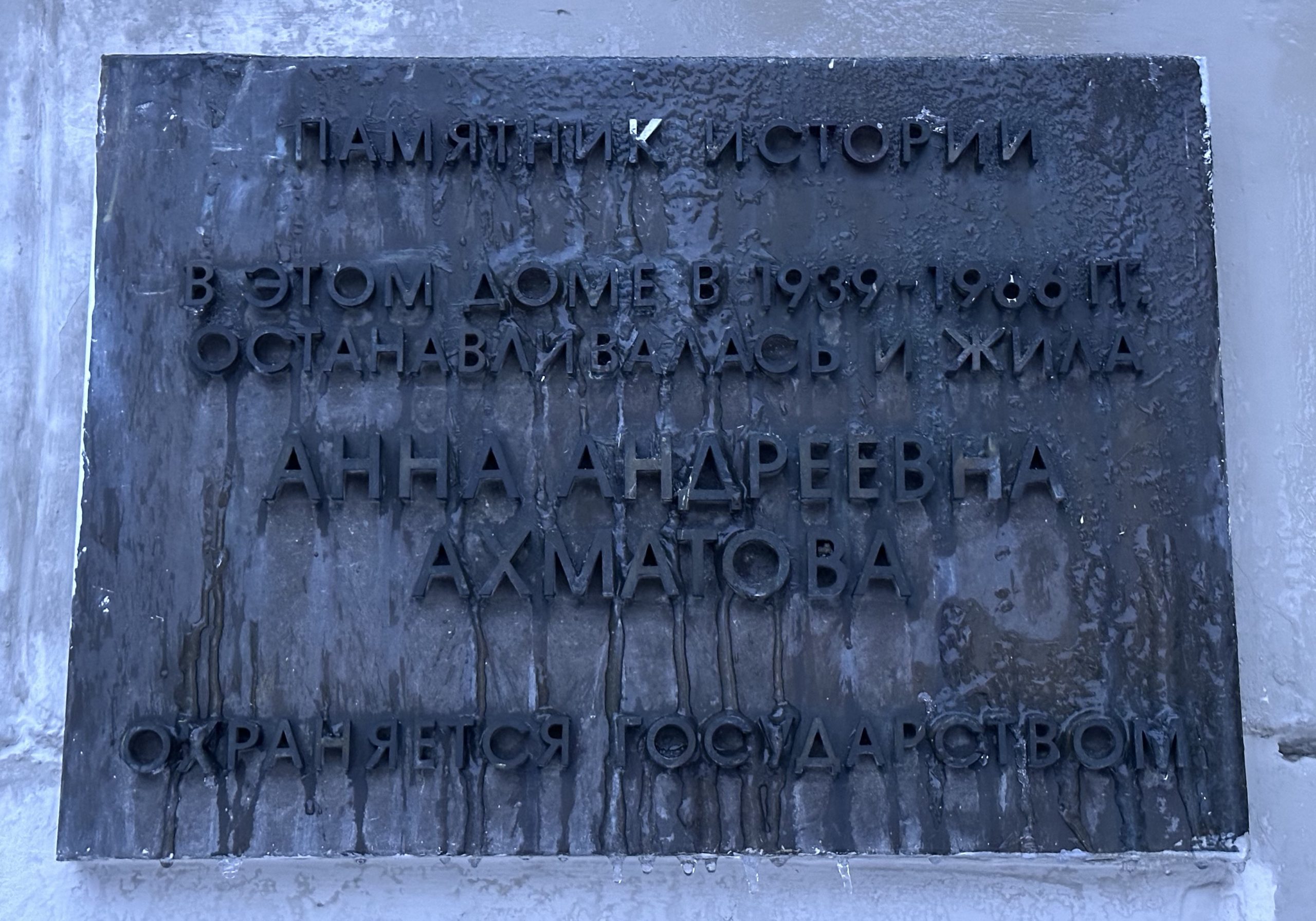Anna Andreevna
Akhmatova
1889-1966

Anna Andreevna Akhmatova was a Russian poet, translator, and literary critic and one of the key figures of Russian literature of the XX century. She was born in Bolshoy Fontan, near Odessa, in the Russian Empire. She came from a noble family, with her father Andrei Antonovich Gorenko being a mechanical engineer and her mother Inna Erazmovna Stogova coming from a well-known family. Her literary activities led her to choose the pseudonym “Akhmatova,” which she took from her great-grandmother’s surname, a member of a Tatar family. Akhmatova’s childhood was spent in Tsarskoye Selo, where she attended Tsarskoye Selo Gymnasium until the age of 16. During her time there, she also met her future husband, Nikolai Gumilev. In 1905, the family moved first to Yevpatoria, Crimea, and then to Kiev. In this city, Anna completed a course at the prestigious Fundukleevskaya Gymnasium which was known for its educational tradition. Akhmatova’s first poem was published in 1907 in Paris in the Russian magazine “Sirius”. Her poetic debut marked the beginning of her meteoric rise in literary circles. In 1912, her first poetry collection “Evening” was published under her pen name. She became one of the leading figures of the Acmeist movement, which was founded in 1912 by Sergei Gorodetsky and Nikolai Gumilyov, whom she married in 1910. Acmeism was the ideal platform for her laconic and precise style, as it opposed symbolism. Anna Andreevna was not only known for her poetic talent, but also for her striking appearance, sharp intellect, and grace. She attracted the attention of her contemporaries, inspiring poets, artists and composers. Poems, dedicated to her, and her portraits, were created by masters such as Nathan Altman, Kuzma Petrov-Vodkin, Yuri Annenkov and Martiros Saryan. Her poetic works served as the basis for musical compositions by Sergei Prokofiev, Alexander Vertinsky and Arthur Lurie. A special place in her life was occupied by her trip to Paris in 1910, where she met the renowned artist Amedeo Modigliani. Their encounter left a profound mark on both of their lives, and Modigliani painted several portraits of Akhmatova, expressing his romantic admiration for her. Despite her literary fame, Akhmatov’s life was marred by tragedy. In 1924, the Central Committee of the Communist Party adopted a resolution banning the publication of her works. In the 1930s, Akhmatova’s life began to take a dark turn. Her son, Lev Gumilev, and her second husband, Nikolai Punin, both art critics, were arrested, causing her great distress. Despite these losses, Akhmatova continued to create and remained true to her literary principles. In the last years of her life, she lived in Leningrad and worked intensively on her poetry, as well as translations, memoirs, and essays. One of her most notable works was her book about Alexander Pushkin, which she dedicated a significant portion of her time to. Akhmatova’s contributions to world literature were recognized in 1964 when she received the Etna Taormina International Prize. Oxford University also awarded her an honourary doctorate in Literature, symbolizing her global significance. Anna Akhmatova will forever be remembered as one of the greatest and most soulful poets of all time, whose talent and resilience managed to overcome the tragedies and hardships of her era.
Address: Moscow, Bolshaya Ordynka str., 17, building 1

